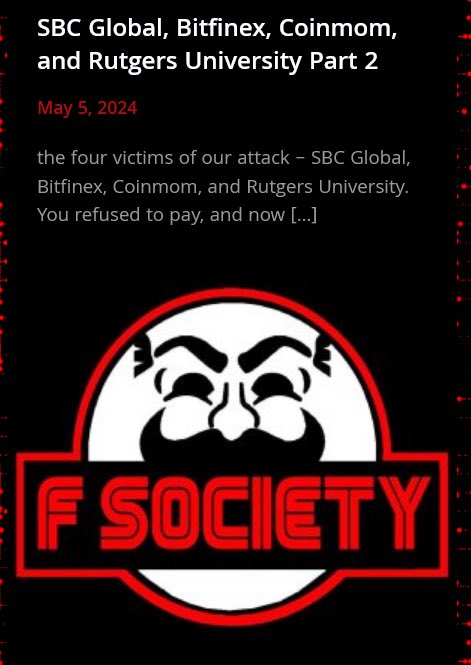Bitcoin
SEC Files Lawsuit Against Binance: Impact on Crypto Market

In a significant development for the cryptocurrency world, the Securities and Exchanges Commission (SEC) has launched a lawsuit against Binance, the world’s largest cryptocurrency exchange. The allegations include operating an unregistered national securities exchange, broker-dealer, and clearing agency, as well as misusing user funds and offering unregistered securities. The news sparked panic selling, leading to a 7% drop in Bitcoin and a 4% drop in Ethereum.
Contents
SEC Lawsuit Shakes Binance and Crypto Market
Binance, the renowned crypto exchange, is now confronting a civil lawsuit filed by the US securities regulator. This legal action has caused a 5% decrease in the overall market cap of cryptocurrencies overnight. The lawsuit’s primary claim revolves around Binance operating as an unregistered national securities exchange, broker-dealer, and clearing agency. What makes this case profound is the SEC’s assertion that several crypto assets, including BNB, BUSD, SOL, ADA, and MATIC, should be classified as securities under US law. This classification has raised concerns among exchanges and other platforms, which might result in the delisting of these tokens due to fears of regulatory repercussions. Additionally, the SEC accuses Binance of offering and selling unregistered securities, focusing specifically on BUSD, BNB, and certain lending and staking programs. Furthermore, the SEC alleges that Binance engaged in the commingling of customer funds, involving billions of dollars, through entities controlled by the exchange’s CEO, Changpeng Zhao.
Commingling of Assets
According to the 136-page filing, Binance utilized accounts held by two entities controlled by Zhao, Merit Peak and Sigma Chain, to transfer tens of billions of dollars among Binance and its associated entities. The filing reveals that in 2021 alone, $145 million was transferred from BAM Trading to a Sigma Chain account, and an additional $45 million from BAM Trading’s Trust Company B account to the Sigma Chain account. Shockingly, $11 million from this account was used to purchase a yacht. Moreover, since the launch of Binance.US, Merit Peak’s US bank account allegedly received over $20 billion, including customer funds from both the US and global Binance platforms. Merit Peak then transferred the majority of these funds to Trust Company A for the purchase of BUSD. The transfer of customer funds to Merit Peak, an allegedly independent entity, could have placed these funds at risk of loss or theft without customer notification.
Misrepresenting Trading Controls
The lawsuit highlights Binance’s failure to implement the trading controls it claimed to have. The SEC alleges that the controls were either nonexistent or ineffective in monitoring and protecting against manipulative activities like wash trading and self-dealing. Evidence provided by the regulator shows that Sigma Chain was engaged in wash trading from September 2019 to June 2022, artificially inflating the trading volume on the Binance.US platform.
Binance Responds and Future Implications
In response to the lawsuit, Binance expressed disappointment with the SEC and affirmed its commitment to cooperating with regulators to seek clarity. The exchange denied allegations of fraud, market manipulation, and commingling of user funds through Zhao-controlled entities, reiterating that these entities were solely used to facilitate user purchases.
Key Takeaways for Investors
Investors should closely monitor the situation, as the SEC’s actions may lead to the delisting of specific tokens from exchanges like Uniswap. However, it is important to note that delisted assets can still be accessed through the underlying smart contracts, which are immutable and uncensorable.
On the other hand, the non-custodial infrastructure could witness improved liquidity as users and liquidity providers shift towards decentralized exchanges that allow them to retain ownership
of their assets. This trend began after the collapse of FTX in November and is expected to accelerate further. If altcoins are officially classified as securities, it is anticipated that the long tail of crypto assets may face tighter market conditions and reduced liquidity. Market makers like Jane Street and Jump Crypto might also scale back their operations in the United States until there is greater clarity regarding the regulatory classification of crypto assets.
Looking ahead, it is important to note that the SEC is not the only agency targeting Binance. The allegations from the Commodity Futures Trading Commission (CFTC) and the US Department of Justice (DOJ) should also be closely monitored, as they could have additional implications for the exchange.
Bitcoin
Telecom Giant Vodafone Bringing Crypto to the Masses Via SIM Cards

The major telecom company Vodafone has unveiled an ambitious plan to integrate cryptocurrency wallets directly into the SIM cards used by mobile phones on its network. This cutting-edge move aims to make blockchain technology and crypto easily accessible to millions of smartphone users worldwide.
What’s Happening?
Vodafone, one of the largest mobile operators based in the UK, intends to combine crypto wallets with the subscriber identity module (SIM) cards inside phones. SIM cards are little chips that allow mobile devices to connect to a carrier’s network.
By embedding a crypto wallet into these ubiquitous SIM cards, Vodafone wants to introduce blockchain and virtual currency technology to the masses through the smartphones we all use daily.
The Bigger Blockchain Picture
This crypto SIM integration is part of Vodafone’s bigger blockchain strategy. The company has developed its own “PairPoint Digital Asset Broker” platform to enable secure digital identities and transactions across different blockchains.
Vodafone’s blockchain lead David Palmer emphasized in an interview that mobile phones are the main way billions access digital services and commerce. So partnering blockchain with SIM card tech is crucial for widespread adoption.
By 2023, there will be over 8 billion mobile phones in use globally. And estimates suggest crypto wallets on smartphones could reach 5.6 billion by 2030 as digital money goes mainstream.
Financial Restructuring
The crypto wallet announcement comes as Vodafone seeks to restructure its finances and raise billions in new funds through debt offerings and loans over the next couple years.
The company plans to take on $2.9 billion in total debt, including $1.8 billion in direct loans. Some of this financial overhaul relates to issues at Vodafone’s Indian subsidiary Vodafone Idea Ltd.
While navigating these monetary hurdles, Vodafone still sees major opportunities in emerging technologies like blockchain and aims to be an innovator helping drive mainstream crypto adoption through the SIM card strategy.
Bitcoin
No Evidence of Hack, Says Bitfinex CTO Amid Ransomware Gang’s Allegations

In the world of cybersecurity, claims of data breaches can cause significant concern and speculation. Recently, a ransomware group named FSOCIETY claimed to have successfully hacked several organizations, including the cryptocurrency exchange Bitfinex. However, Bitfinex’s Chief Technology Officer (CTO), Paolo Ardoino, has dismissed these rumors, stating that a thorough analysis of their systems revealed no evidence of a breach.
According to Ardoino, who is also the CEO of Tether, less than 25% of the email addresses allegedly stolen from Bitfinex’s servers match legitimate users. This casts doubt on the validity of FSOCIETY’s claims regarding the supposed hack.
The ransomware group, styled after the fictional hacking group from the TV show “Mr. Robot,” claimed to have breached several victims, including Rutgers University, consulting firm SBC Global, and a cryptocurrency exchange they referred to as “Coinmoma,” which is likely a misspelling of Coinmama.
Ardoino expressed skepticism about the group’s claims, stating that if they had indeed hacked Bitfinex, they would have demanded a ransom through the exchange’s bug bounty program, customer support channels, emails, or social media accounts. However, Bitfinex received no such requests from FSOCIETY.
Furthermore, Ardoino shared a message from a security researcher suggesting that the real motivation behind the alleged hacks might be to promote FSOCIETY’s ransomware tools, which they reportedly sell access to in exchange for a subscription fee and a commission on stolen profits. Ardoino questioned the group’s need to sell their tools for $299 if they had truly hacked a major exchange like Bitfinex.
It’s worth noting that Bitfinex has previously fallen victim to a significant hack in 2016, resulting in the theft of a substantial amount of Bitcoin. Two individuals, including crypto rapper ‘Razzlekhan,’ pleaded guilty to money laundering charges in connection with that incident.

While the claims made by FSOCIETY have yet to be verified by the alleged victims, Bitfinex’s CTO remains firm in his stance that no breach has occurred. As cybersecurity threats continue to evolve, it is crucial for organizations to remain vigilant and take proactive measures to protect their systems and users’ data.
Bitcoin
Indian Police Seize 268 Bitcoins Worth $17 Million in Crypto Bust

Indian authorities have seized a large sum of bitcoins from a resident of Haldwani, a city in the northern Indian state of Uttarakhand. The seized cryptocurrency stash of 268 bitcoins is worth around $17 million at current prices.
The Enforcement Directorate (ED), a law enforcement agency that investigates financial crimes, carried out the bitcoin seizure. They arrested Parvinder Singh from his home in Haldwani after a raid prompted by information from US authorities.
Singh is allegedly part of an international drug trafficking syndicate called “The Singh Organization.” The criminal group used dark web marketplaces like Silk Road to sell drugs in the US, UK and other European countries.
To hide their illegal activities, the syndicate laundered the drùg money by converting it into bitcoins and other cryptocurrencies. ED officials said Singh and his associates received around 8,488 bitcoins over the years from their drùg sales on the dark web.
The bitcoin seizure was a rare collaboration between Indian and US law enforcement agencies. American officials have been investigating Singh and his accomplice Banmeet Singh for their roles in the international drùg cartel.
Cryptocurrencies like bitcoin are popular among criminals due to the anonymity they provide. However, this case shows authorities are getting better at tracing illegal crypto transactions and bringing the perpetrators to justice.
The investigation is still ongoing, and more arrests and seizures are expected as officials unravel the entire money laundering operation of The Singh Organization.
-

 Altcoins5 years ago
Altcoins5 years agoProject Review: Pi Network, a New Scam Project in Town
-

 Bitcoin4 years ago
Bitcoin4 years agoBitcoin Worth $1.2M Seized From Arrested Indian Hacker
-

 Altcoins6 years ago
Altcoins6 years agoReview: Play Arcade Games Inside ARK Wallet And Win Some Free Cryptocurrency
-

 Blockchain6 years ago
Blockchain6 years agoA Full Review: Utopia A New Decentralized P2P Blockchain
-

 Bitcoin6 years ago
Bitcoin6 years agoAnother Exit Scam: NovaChain Shuts Down
-

 Exchanges5 years ago
Exchanges5 years agoCrex24 Will Require KYC Verification
-

 Bitcoin6 years ago
Bitcoin6 years agoJohn McAfee Has Gone Missing
-

 Blockchain6 years ago
Blockchain6 years agoProject Review: Dmail Decentralized Blockchain Email



















